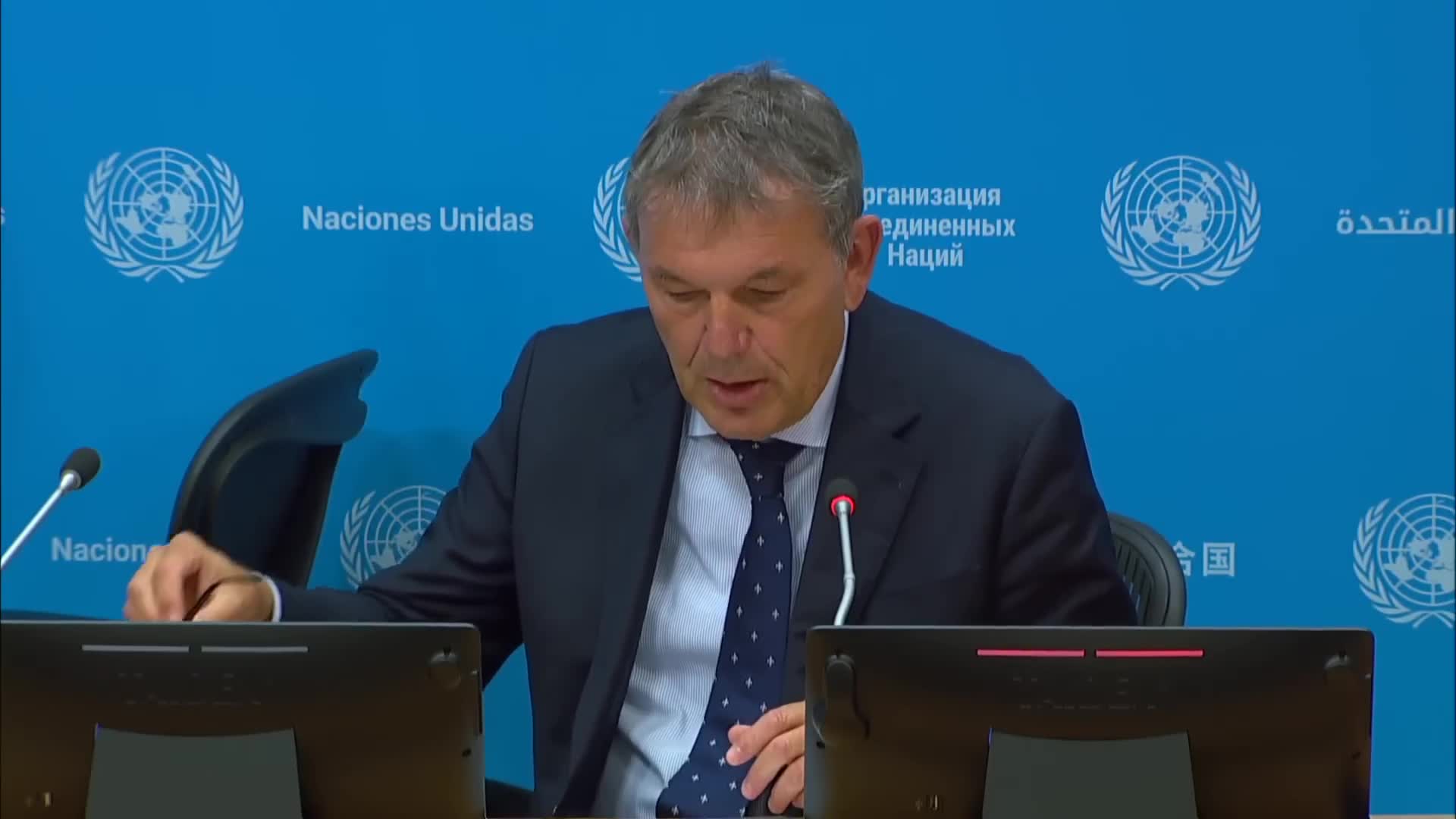Expert Discusses Allenby Bridge Closure Impact on Gaza and West Bank Movement
September 28, 2025 | Israel-Palestine Crisis, United Nations, Federal
This article was created by AI summarizing key points discussed. AI makes mistakes, so for full details and context, please refer to the video of the full meeting. Please report any errors so we can fix them. Report an error »

In a recent press conference held during the Annual Ministerial Meeting at the United Nations, discussions centered around the challenges facing the Palestinian people, particularly in light of ongoing geopolitical tensions. The atmosphere was charged as representatives addressed the implications of the closure of the Allenby Bridge, a crucial crossing point for Palestinians traveling between the West Bank and Jordan.
The Allenby Bridge serves not only as a vital link for personal travel but also as a key supply route for essential goods, including humanitarian aid destined for Gaza. The potential long-term closure of this crossing could severely restrict movement for Palestinians, exacerbating an already dire situation. As one speaker noted, the impact would likely lead to increased hardships for the population, limiting access to necessary resources and further isolating communities.
The conversation also touched on the broader implications of historical injustices faced by Palestinians. A question raised by BBC News highlighted a significant submission made to the UK government, seeking reparations and an apology for its historical role in Palestine. This 400-page document reflects deep-seated grievances and the desire for acknowledgment of past wrongs. While the speaker admitted to being unfamiliar with the specifics of the submission, they emphasized the importance of recognizing injustices as a step toward healing. Drawing parallels to the aftermath of the Lebanese Civil War, they cautioned that unaddressed wounds could fester, leading to long-term societal issues.
As the meeting progressed, it became clear that the discussions were not merely about immediate logistical concerns but also about the identity and history of the Palestinian people. Attacks on educational systems were framed as assaults on Palestinian identity, underscoring the interconnectedness of education, history, and national recognition.
In conclusion, the press conference illuminated the multifaceted challenges facing Palestinians today, from logistical barriers to the need for historical acknowledgment. As the international community continues to grapple with these issues, the hope remains that recognition and dialogue can pave the way for a more just and equitable future.
The Allenby Bridge serves not only as a vital link for personal travel but also as a key supply route for essential goods, including humanitarian aid destined for Gaza. The potential long-term closure of this crossing could severely restrict movement for Palestinians, exacerbating an already dire situation. As one speaker noted, the impact would likely lead to increased hardships for the population, limiting access to necessary resources and further isolating communities.
The conversation also touched on the broader implications of historical injustices faced by Palestinians. A question raised by BBC News highlighted a significant submission made to the UK government, seeking reparations and an apology for its historical role in Palestine. This 400-page document reflects deep-seated grievances and the desire for acknowledgment of past wrongs. While the speaker admitted to being unfamiliar with the specifics of the submission, they emphasized the importance of recognizing injustices as a step toward healing. Drawing parallels to the aftermath of the Lebanese Civil War, they cautioned that unaddressed wounds could fester, leading to long-term societal issues.
As the meeting progressed, it became clear that the discussions were not merely about immediate logistical concerns but also about the identity and history of the Palestinian people. Attacks on educational systems were framed as assaults on Palestinian identity, underscoring the interconnectedness of education, history, and national recognition.
In conclusion, the press conference illuminated the multifaceted challenges facing Palestinians today, from logistical barriers to the need for historical acknowledgment. As the international community continues to grapple with these issues, the hope remains that recognition and dialogue can pave the way for a more just and equitable future.
View full meeting
This article is based on a recent meeting—watch the full video and explore the complete transcript for deeper insights into the discussion.
View full meeting